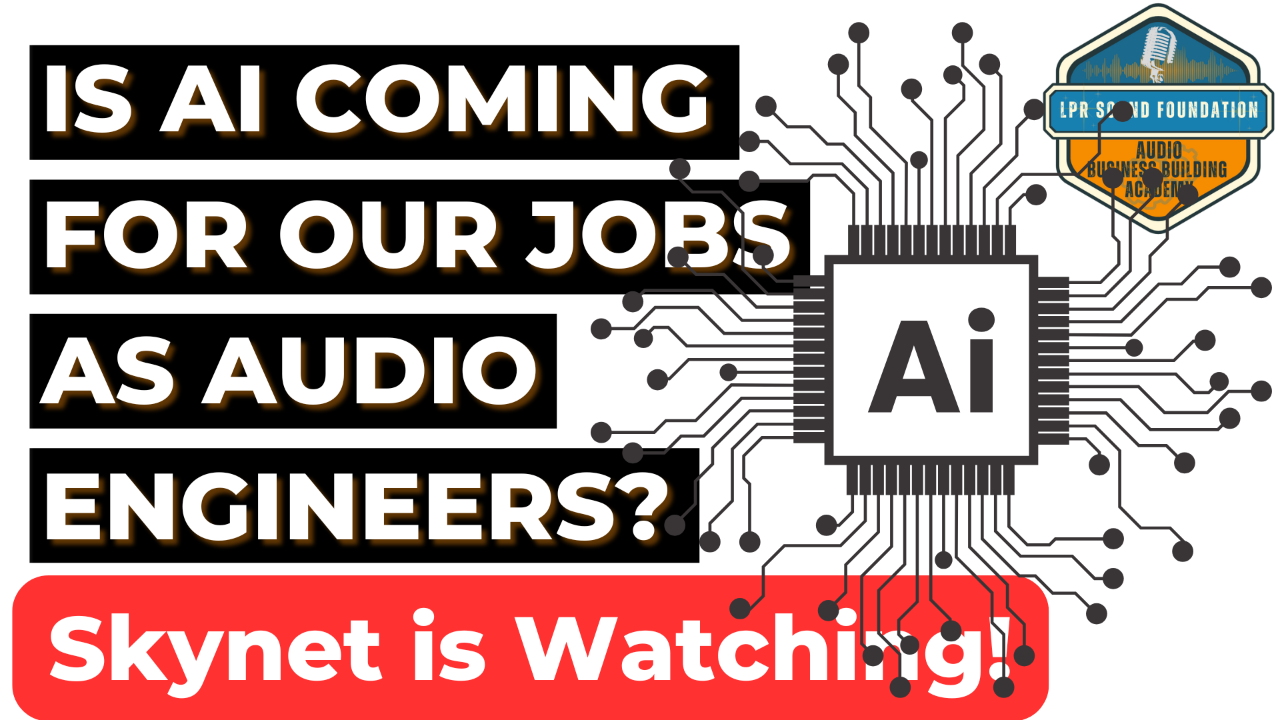Is AI killing the recording industry?
Apr 02, 2025
Artificial Intelligence (AI)
has made significant inroads across numerous industries, including the world of music and audio production. With AI-driven tools now capable of creating music, composing, and even mastering tracks, questions arise about the future of audio engineers and music producers. Will AI replace the nuanced touch of a seasoned professional, or is there a more symbiotic relationship on the horizon?
The Growing Presence of AI in Music Creation
AI has recently turned heads with its ability to autonomously generate music. Platforms like UDIO and SUNO enable creators to generate compositions with a few clicks. This raises questions about the relevance of traditional roles in the audio and music production arena.
AI's ability to learn and adapt makes it a valuable resource in the recording studio. Producers might find AI helpful for creating pro recordings or designing recording templates. Moreover, the precision and speed with which AI works can often complement traditional production methods.
The Expertise of Audio Engineers and Producers
Understanding that creating a seamless track requires more than just skill is important. It demands knowledge and experience, elements that AI has yet to perfect. The nuances of music production—using an EQ, choosing the right Pro Tools templates, and customizing a mastering template—are second nature to seasoned engineers who have spent years honing their craft. Schools of recording emphasize the importance of this hands-on experience, which AI cannot replicate.
Furthermore, studio owners know that building a unique sound requires an engineer’s expertise. While AI offers tools for creating and mixing, it lacks the human touch, intuition, and emotional connection to music. Clients often seek studios for their distinctive sound and personal engagement—elements that AI platforms currently cannot provide.
The Future of Music Production
The question is not whether AI will replace audio engineers and producers but how it can be integrated into their workflows. Just as digital tools like Pro Tools have become indispensable in studios globally, AI can be seen as another tool in the arsenal.
For those looking to enhance their skills, learning to leverage AI tools alongside traditional methods is crucial. Integrating AI could free up time for audio engineers to focus on the more creative aspects of production, allowing them to push boundaries and explore new dimensions of sound.
AI and the Personalized Touch
It’s worth noting that many clients value the relationships they develop with audio engineers and producers. The guidance, mentorship, and personal touch an engineer offers can never be fully replaced by AI. While AI might handle repetitive tasks, the critical listening and creative decisions will always rely on the human element, collaborating with AI rather than competing against it.
In conclusion, embracing AI as a complementary tool rather than a competitor will help audio engineers and producers continue to thrive. By maintaining a balance, professionals in the field can stay relevant and continue producing innovative music for years to come.
Learn Pro Recording!

